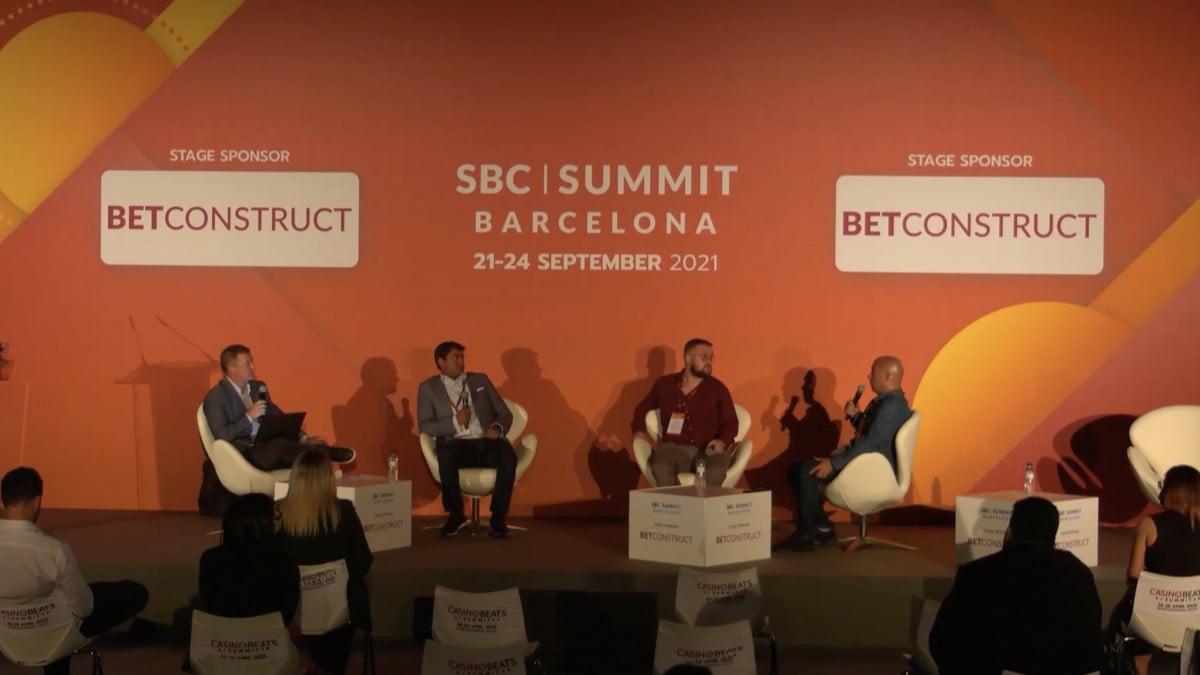As large operators get bigger, so do the challenges for smaller studios to grow and distribute content. With this, the igaming sector continues to look into whether aggregators are the answer for new studios, and the benefits they offer over direct integration.
On the first day of SBC Summit Barcelona, a panel entitled ‘Dialling in on distribution – platforms and aggregators’ – sponsored by Synot Games– took an in-depth look into the issues affecting new studios working directly with big operators with huge tech pipelines
Moderated by Jeremy Coleman, commercial director at PearFiction Studios, the panel consisted of Ryan Byrne, commercial manager for gaming at Betsson, Shivan Patel, commercial director at Pariplay, Ricardo Pinto, CMO at Darwin Gaming.
“We’ve got to look at localised content,” kicked off Byrne, providing a large studio point of view.
He explained that, for aggregators, integrating with smaller studios serves as an off-the-shelf solution, elaborating: “When the smaller supplier is already with the aggregator, it can be two weeks until we’re actually live, whereas direct can take us up to a year or two – sometimes even longer.
“So for us it’s a very off-the-shelf solution – plug and play – and it suits us very well.”
Bringing in a smaller studio perspective, Pinto revealed that “It’s a tricky path” and that most smaller studios have to figure out the best way to get the money coming in as soon as possible. He explained that, with direct integration, it is possible, but the normal route would be to go to an aggregator.
He added: “But it’s a struggle to get a hold of them and make things work, and it’s not always easy – and there’s always a lot of game studios on the pipeline. We’re not the first, we’re not the last and there’s a road ahead. We have to wait, knock on doors, negotiate deals, legal, tech, countries, certification… but it is the quickest way to success, I believe.”
Coming in with an aggregator’s perspective, Patel also highlighted how tough it is for smaller studios, “but certainly not impossible”, and shared his thoughts on aggregation being “certainly the right way to go about it.”
Rounding up the panel, and pressed on whether aggregators are the future for the gaming industry, Byrne remarked: “As it’s looking now, I think yes. For a smaller game studio there’s no other option to get onto those mid to tier top level operators – in my opinion.”
Pinto added: “It makes our lives easier, it makes the games go live faster. If the pipeline makes sense in terms of timing and there’s content that’s actually valuable for the aggregator and the operator at the end of the line, it makes sense.”
Finally, Patel highlighted: “What it does is that it streamlines the whole process: the integration, the commercials, the legal, the compliance… We’re making everything shorter.
“You’re saving time, costs, and your access to the market is very quick. Also, we can offer an array of content so I think, certainly in the medium to long term, it’s the way forward”.
To watch this session On Demand via SBC’s digital platform visit digital.sbcevents.com for a free registration.










